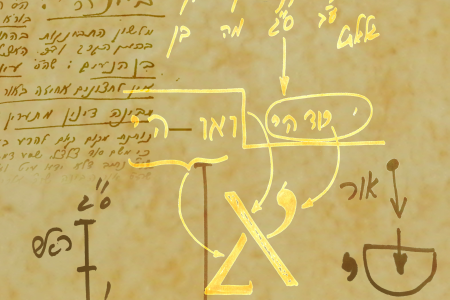
Numbers, 22:2-25:9
This Week’s Torah Portion | June 28 – July 4, 2015 – 11 Tammuz – 17 Tammuz, 5775
In A Nutshell
The portion, Balak, begins with the people of Israel conquering the land of the Amorites. Balak, king of Moab, understands that the children of Israel are nearing him, and prepares to face the nation that came out of Egypt. He sends messengers to Balaam, son of Beor—who was famous for his great wisdom and power of his curses—and asks him to curse the people of Israel.
Balaam leaves for the land of Moab having accepted the harsh stipulation to say only what the Creator will permit him to. Along the way his mare stops. Balaam beats her but the mare won’t move. Balaam cannot see the angel stopping the mare. The mare opens her mouth and speaks to him, and instead of cursing Israel he blesses them.
Balak is furious with Balaam. As a compensation, Balaam tips him that Israel has a weak spot: the daughters of Moab. Balak sends the daughters of Moab and the people of Israel fornicate with them so much that even Zimri, son of Salu, one of the presidents of the tribe of Shimon, takes a Midianite woman.
This situation leaves Pinhas, son of Elazar, with no choice. He takes a spear and stabs them to death, thus stopping the plague that has spread in the nation claiming twenty-four thousand lives.

Commentary by Dr. Michael Laitman
This story does not happen on the corporeal level. It is not about a process unfolding between two nations, but rather an internal correction process that one experiences. The story itself comes to show us how to correct the evil inclination. It is not a tale about children or grownups, nor is it a story about nations, countries, wars, prostitutes, or mares. All it describes is the correction of the evil inclination. It is the only thing that the Torah (Pentateuch) describes from the very beginning, from Adam—who began the correction—to the end.
The text speaks of a person who went through this path as Adam HaRishon (Adam), as Abraham, and as Moses, and who went through the whole process in Egypt and in the desert. During the gradual correction of the desire, a person gradually nears the land of Israel until one is faced with the “conquest” of the land.
The “desert” is a desire that a person still cannot use correctly, and therefore cannot see the fruits of the work with it. These corrections precede the ones known as the “land of Israel.”
The spies discovered that the land of Israel is a desire that, if aimed entirely at the Creator, yields beautiful fruits [Israel means Yashar El (straight to God)]. A person who approaches that correction initially acquires the land of the Amorites followed by the land of Moab, which is a higher degree. Man’s egoistic desire known as “the king of Moab,” Balak, begins to seemingly rebel against him because it does not want the corrections.
Continue reading “Balak Parsha – Weekly Torah Portion”




